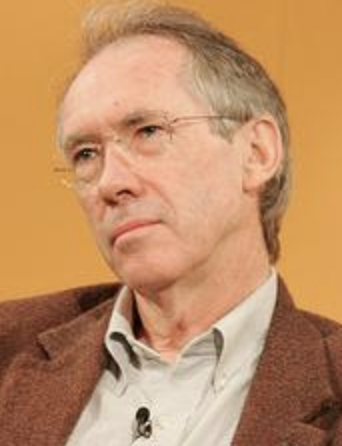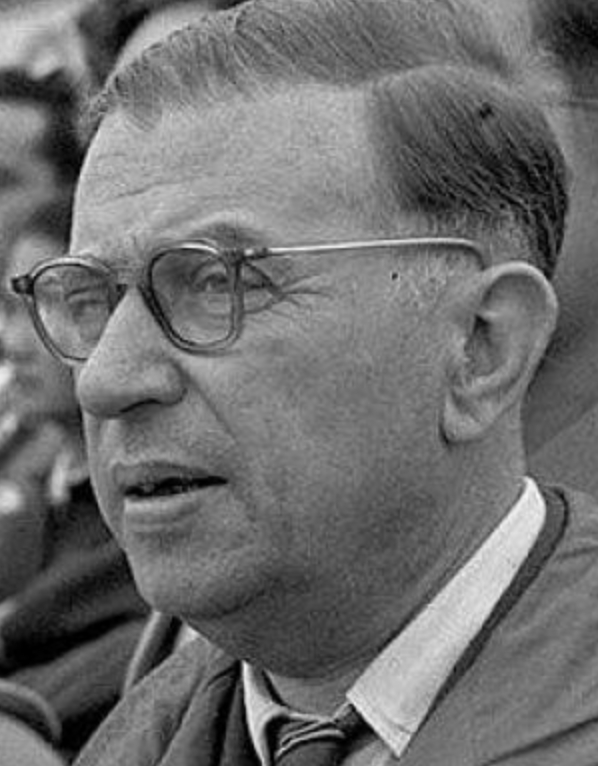June 21
Ian McEwan

On this date in 1948, novelist Ian McEwan, son of a Scottish army officer, was born in Aldershot, England. McEwan spent most of his childhood in East Asia, Germany and North Africa, returning to England in his teens. He attended the University of Sussex and the University of East Anglia, becoming the first graduate of writer Malcolm Bradbury’s newly introduced creative writing course.
McEwan’s novels, which have a dark edge, have earned him worldwide critical acclaim and numerous awards. He’s also written several screenplays, a stage play, children’s fiction and an oratorio. He’s a Fellow of the Royal Society of Literature, the Royal Society of Arts and the American Academy of Arts and Sciences, as well as being a Distinguished Supporter of the British Humanist Association.
McEwan speaks openly on his atheism and was featured on Richard Dawkins‘ series on religion, “The Root of All Evil?”(2006). His freethought views are also expressed by some of his characters. Henry Perowne, in Saturday, defines the supernatural as “the recourse of an insufficient imagination, a dereliction of duty, a childish evasion of the difficulties and wonders of the real, of the demanding reenactment of the plausible.”
In an interview in The New York Times Magazine (Dec. 2, 2007), McEwan, musing about Atonement’s character, Briony, said: “Yes, I am an atheist, and probably Briony is, too. Atheists have as much conscience, possibly more, than people with deep religious conviction, and they still have the same problem of how they reconcile themselves to a bad deed in the past. It’s a little easier if you’ve got a god to forgive you.”
He married Penny Allen in 1982. They had two sons and divorced in 1995. McEwan married author and journalist Annalena McAfee in 1997.
"I find that life is rich, diverse, fabulous, and extraordinary, conceived without a god."
— Interview, NPR affiliate KUSP (Feb. 16, 1998)
Jean-Paul Sartre

On this date in 1905, Jean-Paul Sartre was born in Paris, an only child and the great-nephew of humanitarian Albert Schweitzer. He and his lifelong companion Simone de Beauvoir met at the Ecole Normale Superieure, where he graduated in 1929. After teaching and traveling for several years, Sartre headed a clique of Left Bank intellectuals. His first novel, La Nausee, came out in 1938, followed by the fictional Le Mur (1939), then a collection of short stories and several plays. Drafted during World War II, Sartre was imprisoned for a year in Germany and either escaped or was released, returning to work in the Resistance.
After the war he founded the magazine Le Temps Modernes. Being and Nothingness was his existential masterpiece (1943). Sartre’s nonfiction also included Existentialism and Humanism (1946) and What Is Literature (1947). Sartre was twice the target of terrorist attacks by opponents of Algerian independence, who exploded bombs in his apartment in the early 1960s. He headed the International War Crimes Tribunal set up by Bertrand Russell to judge American conduct in Indochina. His last work was an unfinished biography of Gustave Flaubert.
Atheism was an essential ingredient in Sartre’s existentialism: “Illusion has been smashed to bits; martyrdom, salvation and immortality are falling to pieces; the edifice is going to rack and ruin; I collared the Holy Ghost in the basement and threw him out.” (The Words, 1964).
A heavy smoker, he died at age 68 in Paris of pulmonary edema. (D. 1980)
PHOTO: Sartre in Beijing in 1955.
"We have lost religion, but we have gained humanism."
— Jean-Paul Sartre, Life magazine (Nov. 6, 1964)
Edward Snowden

On this date in 1983, Edward Snowden was born in Wilmington, North Carolina. Snowden is known for leaking highly classified information from the National Security Agency, where he worked, to the press in June 2013. Snowden did not receive a complete formal education. He dropped out of high school and later out of Anne Arundel Community College in Arnold, Maryland, where he studied computer science.
He taught himself computer science, information technology, politics and Japanese and Chinese culture and language and earned his GED. He briefly joined the U.S Army, where he listed himself as Buddhist because agnostic was not an option, according to his own web posting.
Beginning in 2006, Snowden started working on-and-off for the Central Intelligence Agency and National Security Agency, receiving top-security clearance. In May 2013 he left the U.S for Hong Kong and less than a month later was fired from the NSA for leaking classified information to The Guardian and Washington Post. Snowden later was granted asylum in Russia.
Some see him as a whistleblower, exposing many of the post-9/11 laws and the politicians who passed them for compromising Americans’ freedom and privacy. Others view Snowden as a traitor who jeopardized national security by revealing confidential information.
PHOTO: Snowden in the 2013 film “Praxis.”
"I feel that religion, adopted purely, is ultimately representative of blindly making someone else's beliefs your own."
— Snowden, "A Life of Ambition Despite the Drifting" (New York Times, June 16, 2013)
